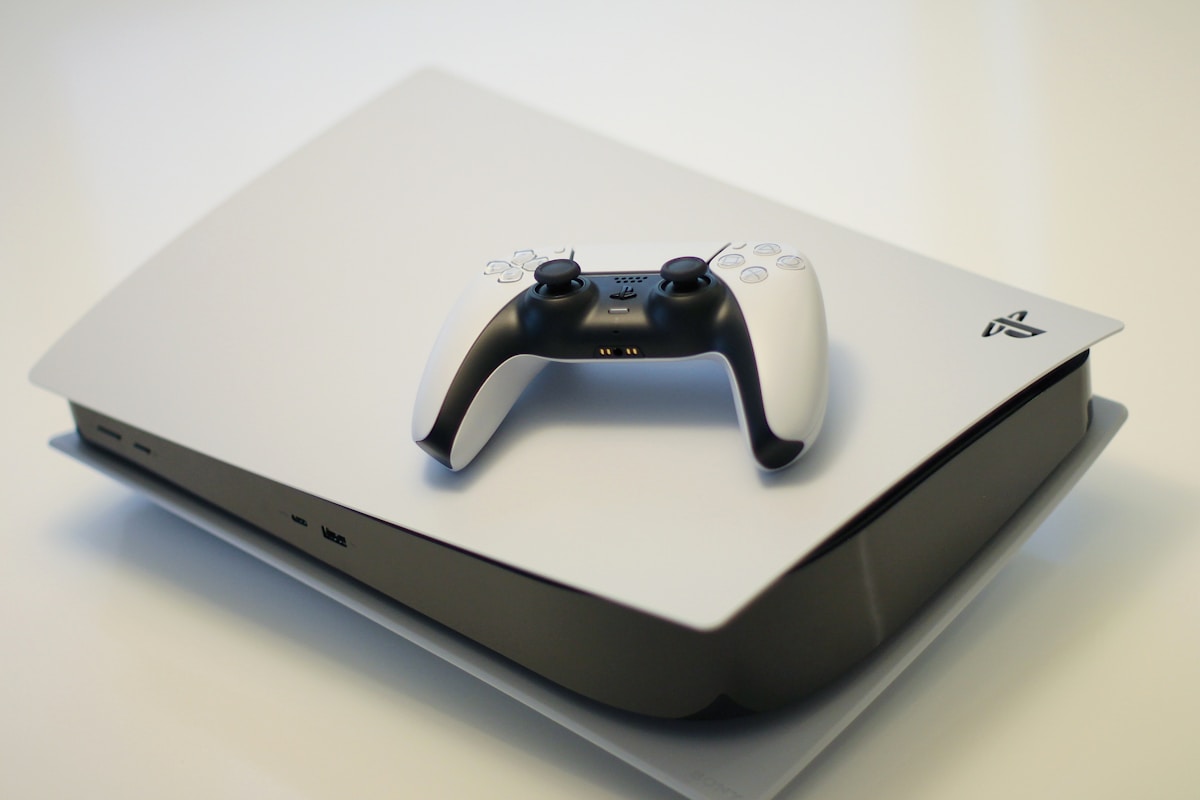Square Enix just made it official. The era of PlayStation-exclusive Final Fantasy games is over. In a financial presentation published on November 6, 2025, the Japanese publisher dedicated an entire slide to showing how it’s moving away from exclusivity deals and embracing simultaneous multiplatform releases. Final Fantasy 7 Remake Intergrade is launching on Xbox Series X/S and Nintendo Switch 2 next year, with Final Fantasy 7 Rebirth confirmed to follow. And according to the company’s own documentation, this strategy is already working.
The shift represents a fundamental change for a company that’s been synonymous with PlayStation since the original Final Fantasy 7 helped establish the PS1 as a dominant platform in 1997. For nearly three decades, Square Enix and Sony have maintained close ties, with major Final Fantasy releases launching as PlayStation exclusives before eventually making their way to other platforms. That relationship is now ending, and the numbers suggest it’s for the best.
The Financial Reality Behind the Decision
Square Enix’s HD Games segment has returned to profitability, and the company directly credits its multiplatform strategy for the turnaround. According to the progress report on its Medium-Term Business Plan, catalog sales within the HD Games business increased 31 percent year-over-year. That’s a massive jump that wouldn’t be possible if the company was still limiting major releases to a single platform.
The presentation specifically highlighted how the strategy is strengthening consumer contact points, which is corporate speak for reaching more players where they already are. Dragon Quest 3 HD-2D Remake and Final Fantasy Tactics both launched on multiple platforms day one. Next year’s Dragon Quest 7 Reimagined will follow that philosophy. Under the multiplatform strategy, multiple platform expansion projects for existing titles have been launched since the fiscal year ending March 2025, steadily expanding the fanbase for each IP, the document reads.
Square Enix is infamous for declaring its games commercial failures even when they sell well. Final Fantasy 16 was called disappointing despite positive reviews. Final Fantasy 15 took years to turn a profit. The pattern has been consistent. The company sets unrealistic sales targets based on AAA budgets, releases games exclusively on PlayStation, then acts shocked when they don’t meet those targets. The multiplatform approach finally addresses the root problem.
What’s Coming to Xbox and Switch 2
The financial presentation showed a clear timeline of Square Enix’s multiplatform rollout. Final Fantasy 7 Remake Intergrade will launch on Xbox Series X/S and Nintendo Switch 2 in 2026. The document also confirms Final Fantasy 7 Rebirth will follow, though no specific date was given. This makes sense given the standard one-year exclusivity window for PlayStation deals.
Interestingly, there’s no mention of Bravely Default Flying Fairy, which launched as a Switch 2 exclusive earlier in 2025. That game apparently doesn’t factor into the organization’s multiformat plans, suggesting Square Enix still makes occasional exclusivity deals for smaller titles when it makes financial sense.
The question everyone wants answered is whether Final Fantasy 7 Remake Part 3 will launch exclusively on PlayStation or simultaneously across all platforms. That likely depends on whether Sony’s exclusivity deal covered the entire trilogy or just the first two parts. Given how aggressively Square Enix is pursuing multiplatform releases, it would be surprising if Part 3 remains exclusive unless Sony paid an enormous sum to extend the deal.
The Quality Over Quantity Shift
Square Enix’s financial troubles over the past few years weren’t just about platform exclusivity. The company was spreading itself too thin, greenlighting too many projects without adequate oversight, and burning money on initiatives that didn’t pan out. The Medium-Term Business Plan addresses this with a focus on quality over quantity under the theme Square Enix Reboots and Awakens.
That means fewer games overall, but more resources dedicated to making sure each release meets higher standards. The multiplatform strategy fits into this approach because launching on multiple platforms simultaneously requires more planning and coordination. You can’t just throw a game onto Xbox six months after PlayStation and call it done. Everything needs to work properly from day one across all systems.
The plan also emphasizes smarter spending and diversified customer engagement beyond just selling games. Merchandising collaborations like the Final Fantasy x Magic The Gathering crossover and overseas retail expansions under the TAITO brand generated record-breaking results. Cross-media initiatives including manga, anime, and other adaptations keep IPs relevant between game releases.
Catalog Sales Driving Growth
One of the most important revelations in the financial report is how much Square Enix is benefiting from catalog sales. That 31 percent year-over-year increase represents older games continuing to sell as they reach new platforms. Final Fantasy 7 Remake Intergrade hitting Xbox and Switch 2 won’t just generate new sales from those ecosystems. It’ll also drive renewed interest in the PlayStation version and boost sales of Rebirth when it eventually becomes multiplatform.
This creates a virtuous cycle where each platform expansion breathes new life into existing titles. PC players who discover Final Fantasy through Steam releases might pick up a PlayStation 5 to play newer entries sooner. Xbox players who fall in love with the series through Game Pass might buy special editions or DLC. The pie gets bigger rather than just being sliced differently.
The End of an Era
For PlayStation fans, this news might sting a little. Having Final Fantasy as essentially a PlayStation franchise was a point of pride and a major selling point for Sony’s consoles. The exclusivity created the perception that PlayStation was the premium platform for JRPGs, which helped drive hardware sales and ecosystem lock-in.
But exclusivity was always more about business deals than creative vision. Square Enix didn’t make Final Fantasy games PlayStation-exclusive because they were uniquely suited to Sony hardware. They did it because Sony paid for exclusivity windows that helped offset development costs. As budgets ballooned and those exclusivity payments failed to guarantee profitability, the arrangement stopped making sense for Square Enix.
Sony itself is moving away from strict exclusivity, with more first-party titles launching on PC within months of PlayStation releases. If the platform holder recognizes that multiplatform is the future, it’s unreasonable to expect third-party publishers to maintain exclusivity out of loyalty.
What This Means for Other Publishers
Square Enix won’t be the last major publisher to abandon platform exclusivity. The math is too compelling. AAA game budgets now regularly exceed 200 million dollars, and selling to a single platform’s user base makes those investments incredibly risky. Even massive hits like God of War Ragnarok are coming to PC because Sony needs every dollar it can get.
Expect more Japanese publishers to follow Square Enix’s lead. Capcom already releases most games multiplatform from day one. Bandai Namco does the same. Sega has been multiplatform for years. The holdouts are becoming the exception rather than the rule, and they’re mostly doing it for specific business reasons like Game Pass deals or timed exclusivity payments rather than strategic advantage.
The Exception: Nintendo
It’s worth noting that Nintendo remains the one platform where exclusive deals still make sense for third parties in certain situations. The Switch 2’s unique form factor and control options create genuine differentiation. Games designed around Nintendo’s hardware capabilities can’t easily port elsewhere without significant changes.
Square Enix recognizes this, which is why they’re still doing occasional Nintendo exclusives like Bravely Default Flying Fairy. But even there, the trend is toward simultaneous releases rather than exclusivity. The days of games like Octopath Traveler launching only on Switch for a year are fading.
FAQs
Is Square Enix still making PlayStation exclusives?
No, Square Enix has officially announced a multiplatform strategy that will see all future major releases launching simultaneously on PS5, Xbox Series X/S, PC, and Nintendo Switch 2. The company’s November 2025 financial presentation confirmed this shift away from exclusivity deals.
Will Final Fantasy 7 Rebirth come to Xbox?
Yes, Square Enix’s financial documentation specifically confirmed that Final Fantasy 7 Rebirth will release on additional platforms following the PlayStation exclusivity window. No exact date was provided, but it’s expected to launch on Xbox Series X/S and other platforms in 2026.
What about Final Fantasy 7 Remake Part 3?
It’s unclear whether Part 3 will be PlayStation exclusive or launch simultaneously across platforms. This depends on whether Sony’s exclusivity deal covered the entire trilogy or just the first two games. Given Square Enix’s new strategy, a multiplatform launch seems more likely unless Sony negotiates a new deal.
Is this strategy working financially for Square Enix?
Yes, Square Enix’s HD Games segment has returned to profitability, and the company credits its multiplatform strategy for the turnaround. Catalog sales increased 31 percent year-over-year, and the company reports steadily expanding fanbases for its IPs.
Will older Square Enix games come to Xbox and Switch 2?
Yes, Final Fantasy 7 Remake Intergrade will launch on Xbox Series X/S and Nintendo Switch 2 in 2026. The financial report indicates multiple platform expansion projects for existing catalog titles are already underway.
Why did Square Enix make this change?
AAA game budgets have ballooned to the point where releasing exclusively on one platform is financially irresponsible. Square Enix has repeatedly declared games commercial failures despite decent sales because the limited audience couldn’t support the development costs. Multiplatform releases expand the potential customer base significantly.
Does this mean Square Enix won’t work with Sony anymore?
No, Square Enix games will still release on PlayStation. They just won’t be PlayStation-exclusive anymore. The company wants to release games simultaneously across all platforms rather than making players on Xbox or Nintendo wait months or years for ports.
Are any Square Enix games still exclusive to specific platforms?
Bravely Default Flying Fairy launched as a Nintendo Switch 2 exclusive in 2025, showing Square Enix still makes occasional exclusivity deals for smaller titles. However, the company’s major franchises and AAA titles will follow the multiplatform strategy going forward.
Conclusion
Square Enix’s pivot away from PlayStation exclusivity represents the end of an era, but it’s the right move for a company that’s been struggling financially despite releasing quality games. By launching titles simultaneously across PS5, Xbox, PC, and Switch 2, the publisher can finally achieve the sales numbers its massive budgets require. The 31 percent increase in catalog sales proves the strategy works, and the HD Games segment returning to profitability validates the approach. While PlayStation fans might feel a sense of loss, the reality is that more players getting access to Final Fantasy and other Square Enix franchises benefits everyone. The games themselves won’t be worse because they’re multiplatform. They’ll just reach the audiences they deserve, and that’s better for the industry as a whole.



